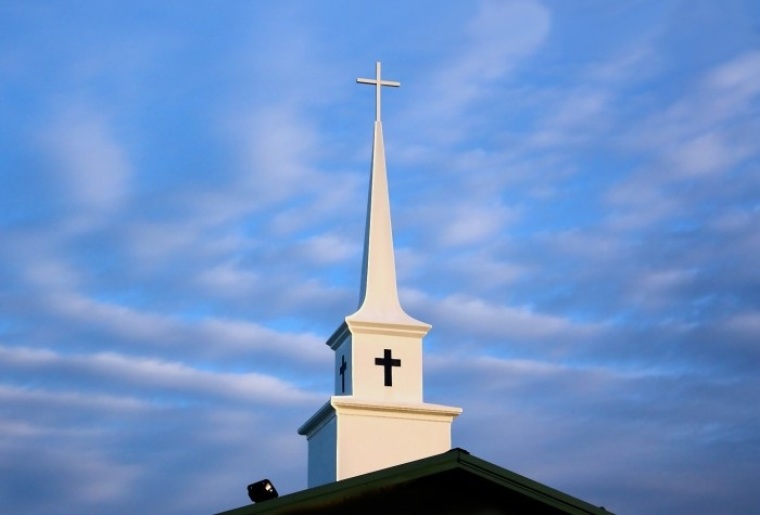Mega or middle or does one size church fit all?

FAITH, N.C. (Christian Examiner) — "Our new church has so much more to offer kids than yours did," she said, smiling proudly and placing special emphasis on the word so. "Now our daughter is in a 100-voice children's choir!"
This was the first time I had run into "Carla" since she and her family had left our average-sized, conservative Southern Baptist church in Ohio which my husband pastored several years ago. Carla's new inter-denominational church had no recognizable belief-system or doctrinal statement. What her new church did have, however, was a whole lot of people. It could be called a mega-church.
I could have conjured-up all kinds of choice ways to tell Carla off during her demeaning conversation. But the Holy Spirit prompted me to graciously respond, "We wish you the best."
(Sometimes I am thankful that the same God who can shut the mouths of lions can shut my mouth, too.)

Mega churches have plenty to offer kids. Lots of staff. Expensive, well-planned activities. Matching t-shirts with catchy slogans on them. Busloads of teens going to summer camp. But according to the North American Mission Board's website, most Southern Baptist congregations only have one morning worship service with the typical congregation (the median) having 80 in attendance. Furthermore, according to the National Congregations Study, my current North Carolina 200-300 attender church is in the top 20% of Protestant congregation sizes. So the truth is that families who attend mega churches (generally considered to be 2,000 or more in attendance) are in the minority.
If you have been a pastor or pastor's wife in the typical American congregation in recent years, however, you might have felt like YOU are in the minority. And there's a good chance you have experienced your own Carla who has left your church for a larger one. What are we – who attend and serve the not-so-mega-churches of America - supposed to think when we get deserted for someplace "bigger and better?" Modern Christianity would claim that Carla was correct to lead her kids out of our healthy but smaller-sized congregation and into that inter-denominational mega church. Aren't parents doing the right thing when they ditch the church with a few hundred folks and take their kids to a supersized congregation which has "so much more to offer?"
Not necessarily. And here's why.
- In the average-sized church, people know my children. My kids are called by name as they walk down the halls: they are asked if they won their basketball game or how their violin recital went. Their attendance and participation in church are appreciated, and they are cared about.
- In the average-sized church, my kids have the opportunity to serve. My 13 year old son is learning to work projection and sound by sitting with and helping our audio-visual team on Sundays. That type of work gives my son joy and satisfaction, and he is learning skills that he can use his entire life. The size of our church allows my teenager to already begin serving in meaningful ministry.
- By growing-up in the average-size church, my children will always feel at home in an average-sized church. Although there are many perks for kids in a mega church, it could be a challenge for those kids to later transition to a smaller church. A child who was raised in a congregation of 4,000, for instance, might later feel underwhelmed and bored as an adult who must join a congregation of 300. But a child who enjoys the comforts of a cozy-sized congregation when young will always value its benefits.
- In the average-sized church, children and teens interact more frequently with people outside their age group. Because children and teens in the not-so-mega-church are not continuously offered their own programs with kids their own age in their own facilities, they are more exposed to younger and older people. Kids therefore have the opportunity to converse with, seek advice from, and assist folks outside their age group. That elderly woman who has trouble walking could use someone to rake her leaves, my son might perceive as he holds-open the door to the sanctuary for her.
- Children and teens raised in the average-sized church are less likely to get lost in the crowd. If my daughter misses a week or two, her absence will be noticed. Or the fact that something is bothering her is more likely to be detected when she worships in a smaller crowd.
- Some of the best doctrine is found in small-to-medium sized churches. Praise God for the outstanding mega churches in the SBC that hold to right interpretation of Scripture and preach the Word of God faithfully! But unfortunately, some mega churches were built on a sandy foundation of ear-tickling, doctrinal compromise, and pandering to the wealthy. I would rather raise my kids in a smaller church with correct theology and dedication to Biblical truth than in a larger church with "bells and whistles" which has questionable doctrine.
- In the average-sized church, perfection is not expected. When the singer hits wrong notes and forgets a line of her solo during a not-so-mega-church cantata, the crowd cheers just as enthusiastically... maybe even more so... because they know her. They know how nervous she was about singing that solo. That crowd understands that Jesus was just as glorified through her mistakes as He would have been hearing a singer who never messes-up. And when my children hear her mistakes, they realize that they likewise have the ability to worship and serve imperfectly. In an average-sized church, worship and service are not reserved for professionals.
- Big numbers unfortunately bring the temptation of pride. I once stood in a Cracker Barrel waiting to hear my name called for a table while endlessly having to listen to a man brag about the awesomeness of his mega church: how many international mission trips it takes each year, how many dozens of pastors it has on staff, and how many millions of dollars are in its budget. Never once did he ask about what great things God was doing in my average-sized church. As I listened to that man carry-on, I could tell that he had lost sight of the line between praising God for His goodness, and boasting about Earthly accomplishments and numerical gain. Sometimes being not-so-mega brings the blessing of meekness, which pleases Jesus. Blessed are the meek: for they shall inherit the earth. Matthew 5.5 KJV.
- The Bible tells us that small congregations are just as important as big ones. The Lord obviously does not have a problem with large congregations or quick growth. Acts 2 tells how the Church added 3000 to its numbers in one day! But Acts 16 reminds us how Paul was impressed with Lydia and a few of her friends who met at the river to pray and worship. Lydia's small gathering of believers was just as important in God's eyes as the largest church in Jerusalem. Too often in the era of the Mega-Church Movement, comparatively smaller groups of believers are ridiculed as being less motivated, less successful in ministry, and having less to offer – especially to children and teenagers. Nothing could be further from the truth.
Growth is good. And someday the Lord might call my husband to pastor a mega church. If He does, I will joyfully worship and serve there to the best of my ability. But if He does not, that's alright, too. In fact, it's better than alright. I tremendously enjoy serving a close-knit family of believers who love me and whom I love. My average-sized congregation supports and cares for my husband and me, and they help us disciple our three precious children into becoming spiritual champions for the Kingdom of God, who will hone their talents and gifts for the Lord, and who will find their success and purpose in the will of Jesus Christ. What could be bigger and better than that?
-- Kara Barnette is pastors wife at Faith Baptist Church in Faith, North Carolina. This column appeared on SBC Today and is used with permission.